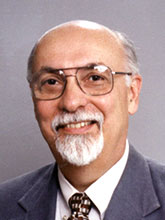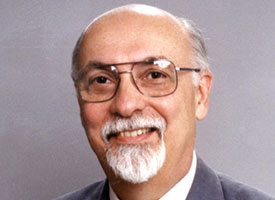With Dr. Bruce Hartung
In the 20-plus years’ existence of “Pressure Points,” I have yet to offer a repeat of a column. Now I will break new ground in that regard. Basically, this month’s column repeats the June 2013 “Pressure Points,” with some editing. The reason? I have recently heard from several readers who repeated concerns of those addressed by that column a year ago; and since I really cannot do any better than I did last year … well, here goes!

Basically, this is the question, distilled and summarized (in italics):
Q: We are excited because we are receiving a new worker (or workers) into our congregation (workers mainly being directors of Christian education, directors of Christian outreach, pastors or teachers, and also deaconesses, music directors or lay ministers). How can we help the new worker adapt to us, become part of us and be supported?
A: I commend these readers for a lot of reasons. Among them:
- They are intentional about developing supportive systems for their workers — in this case, new workers. Supportive people, systems and policies do not just appear; rather, they are a product of thinking about such things, planning for them and developing skills and policies that are actually supportive. They are not being passive, just waiting and hoping that their new workers will be productive and fulfilled in their time with their congregation and school. They are being active. I hope they keep these conversations and intentionality going.
- They recognize that we share responsibilities for the health and well-being of the members of the community. It is not that a congregation or a school should call or hire a worker and then sit back and wait to see how it goes, or figure that the worker can take care of all this himself or herself. We live in the community that St. Paul talks about as the body of Christ, and in that community we intentionally care for and support each other. We do carry responsibilities for each other, and they are taking that mutuality seriously and wonderfully.
I hope and pray that this proactive attitude and mutual sharing will be mirrored by others and blessed by God’s Holy Spirit.
And here are some other ideas for helping our church workers:
- Workers who have spouses and families also need support for them. Pay attention to the needs of both spouse and children. I know that in moves I have made, my spouse and our children had their own moving and adaptation challenges. Be sensitive to those.
- Assume nothing, and ask a lot of questions. Sometimes when we do not hear a voice of pain, we think everything is going well. But sometimes it is not. Silence does not necessarily imply that adjustment is going well. Some folks are a bit private in that way. Be proactive and ask not only how things are going, but what specific kinds of help and assistance are needed. You, your congregation or your school may not be able to help with everything, but concern and inquiry say a lot.
- Note that there is a book available — Holding Up the Prophet’s Hand: Supporting Church Workers, which I wrote and which is available from Concordia Publishing House. I encourage you and other leaders in the congregation to read it. My book suggests positive and proactive steps that a congregation, school or other church-related organization can take to help their workers stay holistically healthy amid the challenges that are peculiar to church work (although not unique to it).
- Whether you use the book or not, reinforce with prayer and conversation your intentional supportive impulse. Indeed, such prayer and conversation are Spirit-inspired and will be blessed, I am sure!
I welcome word of ideas and initiatives that support new workers. Please let me know what your congregation or school is doing in that regard.
The Rev. Bruce M. Hartung, Ph.D., is professor of Practical Theology at Concordia Seminary, St. Louis. He can be reached at hartungb@csl.edu.
Posted June 2, 2014
